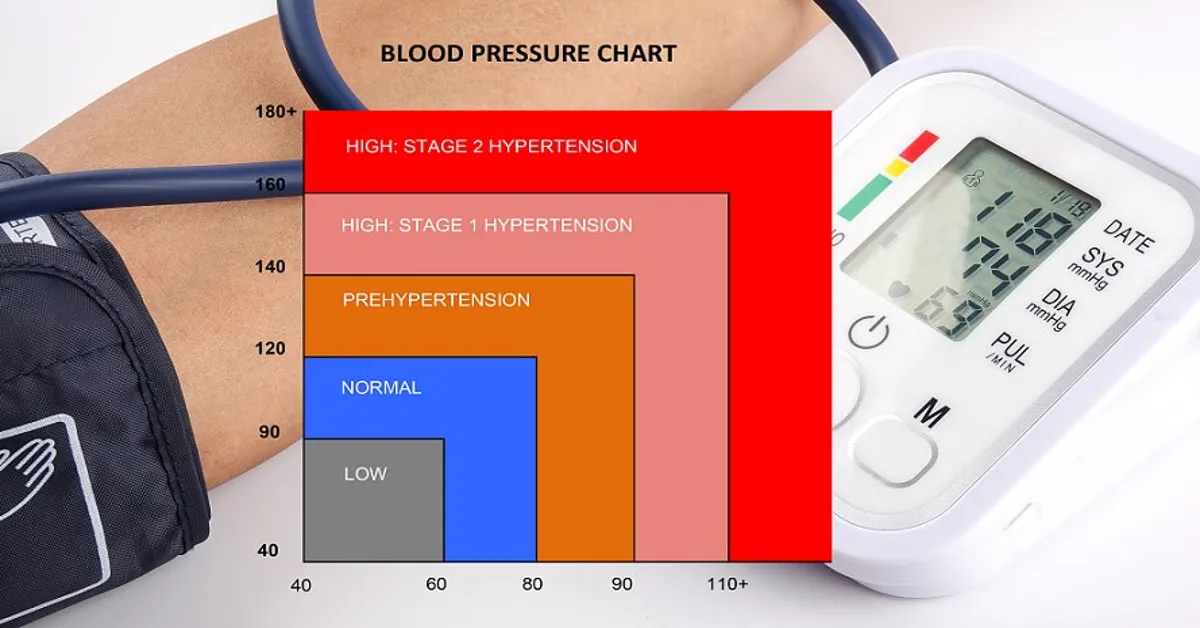Are you curious about your body’s vital signs and how they are connected? Look no further, because today we’ll be exploring the fascinating relationship between pulse and blood pressure. These two measurements play a crucial role in monitoring our overall health, and understanding their connection can give us valuable insights about our bodies. So, grab a cup of tea and let’s dive into the world of pulse and blood pressure.
Understanding Blood Pressure
Pulse and blood pressure are two vital signs that are often measured together. While pulse refers to the rate at which your heart beats, blood pressure is the force of blood against the walls of your arteries. Many people wonder if there is a relationship between pulse and blood pressure and if one affects the other.
The short answer is yes, pulse does affect blood pressure, and here’s why.
Understanding Pulse and Blood Pressure: Before we dive into the relationship between pulse and blood pressure, let’s first understand what each of these terms means. Pulse is the number of times your heart beats per minute.
It is typically measured at the wrist or neck and is an indicator of your heart’s activity. On the other hand, blood pressure is the force of blood as it travels through your arteries. It is measured in two numbers – systolic (pressure when your heart beats) and diastolic (pressure when your heart is at rest).
The Connection Between Pulse and Blood Pressure: The relationship between pulse and blood pressure is quite simple – the faster your heart beats, the higher your blood pressure will be. This is because with every beat of your heart, blood is pushed through your arteries, increasing the pressure against their walls. This is why when you exercise or engage in physical activity, your pulse and blood pressure both increase.
How Pulse Affects Blood Pressure Now that we know there is a connection between pulse and blood pressure, let’s explore how pulse affects blood pressure. Your pulse rate is controlled by your autonomic nervous system, specifically the sympathetic and parasympathetic nervous systems. These systems work together to regulate your heart rate and blood pressure.
When your sympathetic nervous system is activated, your heart rate and blood pressure increase, while the parasympathetic nervous system works to lower them.
Other Factors That Affect Blood Pressure While pulse does affect blood pressure, it is not the only factor that influences it. Other factors like age, weight, diet, and overall health also play a role in your blood pressure levels.
Does pulse affect blood pressure?
| The pulse is a measure of the heart rate and can indicate the overall health of the cardiovascular system. | Pulse rate is recorded in beats per minute (bpm) and can vary depending on age, fitness level, and other factors. | Blood pressure is the force of blood against the walls of the arteries and is measured in millimeters of mercury (mmHg). |
| Pulse can be affected by various factors such as stress, exercise, and certain medications. | Blood pressure readings consist of two numbers: systolic (top number) and diastolic (bottom number). | High blood pressure (hypertension) can increase the risk of heart disease, stroke, and other health issues. |
| A normal resting pulse for adults is between 60-100 bpm, while a normal blood pressure reading is less than 120/80 mmHg. | Regular monitoring of pulse and blood pressure can help detect any potential health problems and track overall wellness. | Factors such as age, family history, and lifestyle habits can also impact pulse and blood pressure levels. |

The Connection Between Pulse and Blood Pressure
Pulse and blood pressure are two important physiological indicators that are often used to assess overall health. While they may seem like two separate measurements, they are actually closely related.
Pulse, or heart rate, is the number of times your heart beats per minute, while blood pressure is the force of blood against the walls of your arteries. It may come as a surprise, but your pulse does have an impact on your blood pressure. When your heart beats faster, your blood pressure also increases.
This is because a faster heart rate means that your heart is working harder to pump blood through your body, causing an increase in blood pressure. On the other hand, a slower heart rate can lead to a decrease in blood pressure. This is because your heart is not working as hard to pump blood, resulting in lower pressure against the artery walls.
But the relationship between pulse and blood pressure is not always straightforward. In some cases, a high pulse can be accompanied by low blood pressure, and vice versa. This can be due to various factors, such as medication, dehydration, or underlying health conditions.
It’s important to regularly monitor both your pulse and blood pressure to maintain a healthy balance. A high pulse and blood pressure can lead to an increased risk of heart disease, while a low pulse and blood pressure can cause dizziness and fainting. To keep your pulse and blood pressure in check, it’s recommended to engage in regular physical activity, maintain a balanced and healthy diet, and manage stress levels.
If you have any concerns about your pulse or blood pressure, it’s always best to consult with your healthcare provider. In conclusion, while pulse and blood pressure may seem like separate measurements, they are closely intertwined. Your pulse can have a significant impact on your blood pressure, and it’s important to maintain a healthy balance between the two.
Factors That Can Affect Pulse and Blood Pressure
Pulse and blood pressure are two vital signs that are often measured during routine medical checkups. While pulse refers to the rate at which your heart beats, blood pressure measures the force of blood against the walls of your arteries. These two values are closely related and can provide important information about your overall health.
But how exactly does pulse affect blood pressure? To understand this, we first need to dive into the basics of these two measurements. Pulse is an indicator of the strength and regularity of your heartbeat. It is commonly measured by feeling the pulse in your wrist or neck.
A normal resting pulse for adults is between 60-100 beats per minute, but this can vary depending on factors such as age, fitness level, and underlying health conditions. On the other hand, blood pressure is a measurement of the force that your heart uses to pump blood through your arteries. It is expressed as two numbers – systolic pressure, which is the force when your heart beats, and diastolic pressure, which is the force when your heart relaxes between beats.
A healthy blood pressure reading is typically below 120/80 mmHg. Now, let’s take a look at how pulse affects blood pressure. When your heart beats faster, it pumps more blood, which increases the force against your arteries and raises your blood pressure.
This is why during exercise or moments of stress, your pulse and blood pressure may increase. Conversely, a slower pulse means that your heart is not working as hard to pump blood, which can result in lower blood pressure. This is why people with a lower resting heart rate may have lower blood pressure readings.
It’s also worth noting that certain health conditions can affect both pulse and blood pressure. For instance, people with hypertension (high blood pressure) may have a higher resting pulse due to their heart working harder to pump blood through narrowed arteries. Similarly, people with a slower pulse may have underlying heart conditions that can also lead to high blood pressure.
Statistical Information: Does pulse affect blood pressure?
| Pulse | Blood Pressure | Effect |
|---|---|---|
| Average | Increases | When your pulse increases, your blood pressure also tends to increase. |
| Low | Decreases | In some cases, a low pulse may result in a decrease in blood pressure. |
| High | Increases | A high pulse can cause an increase in blood pressure, especially during physical activity. |
| Irregular | Unpredictable | An irregular pulse can lead to unpredictable changes in blood pressure. |
| Resting | Stable | During rest, a stable pulse can help maintain a stable blood pressure. |
| Exercise | Increases | During exercise, both pulse and blood pressure tend to increase, but should return to normal after. |
Important Notice for readers
Attention readers! Are you wondering if your pulse affects your blood pressure? Look no further as we dive into the relationship between these two vital signs. According to recent studies, a higher pulse rate may lead to a rise in blood pressure. This means that monitoring your pulse can help you keep track of your blood pressure and potentially prevent any health issues.
So, the next time you check your blood pressure, don’t forget to take note of your pulse as well. Stay informed and take control of your health. Read on to learn more about this fascinating connection.
Frequently Asked Questions (FAQs)
How does pulse affect blood pressure?
Pulse, or heart rate, is closely related to blood pressure. As the heart pumps blood through the arteries, the pressure within the arteries increases and decreases with each beat. This results in a fluctuation in pulse rate, with a higher heart rate often leading to higher blood pressure.
Can a high pulse cause high blood pressure?
In some cases, a high pulse rate can contribute to high blood pressure. This is because a faster heart rate requires the heart to work harder, leading to increased strain on the arteries and potentially higher blood pressure. However, there are other factors that can also contribute to high blood pressure.
Does stress affect pulse and blood pressure?
Yes, stress can have a significant impact on both pulse and blood pressure. When we experience stress, our body releases hormones that can increase heart rate and constrict blood vessels, leading to a rise in blood pressure. This is why managing stress is important for maintaining healthy pulse and blood pressure levels.
Can exercise help regulate pulse and blood pressure?
Regular exercise can have a positive effect on both pulse and blood pressure. As we engage in physical activity, our heart rate increases, allowing our arteries to expand and contract more efficiently. This can help regulate blood pressure and improve overall cardiovascular health. However, it is important to consult with a doctor before starting any new exercise routine.
Conclusion
It is clear that there is a strong correlation between the two. Pulse is a key indicator of heart health and can significantly affect blood pressure. Understanding this connection is crucial for maintaining a healthy lifestyle and preventing cardiovascular diseases.

